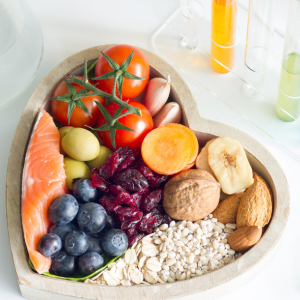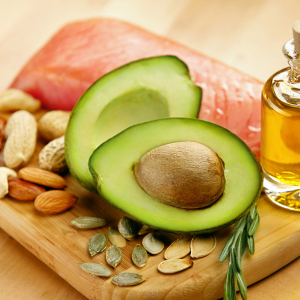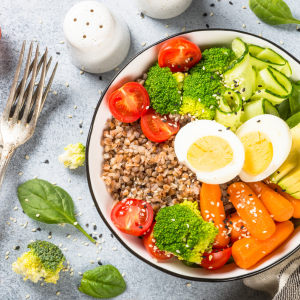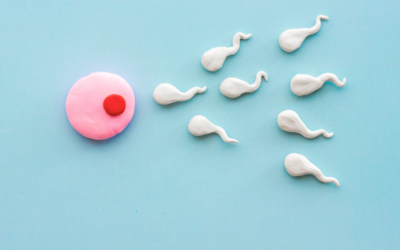Becoming a mom is one of life’s most beautiful experiences—but let’s be real, your body goes through a lot during pregnancy and childbirth. After delivery, your body needs time, care, and nourishment to heal properly. And one of the most powerful ways to support that healing is through the right postpartum recovery foods.
Whether you had a normal delivery or a C-section, your body needs extra nutrients to repair tissues, balance hormones, rebuild strength, and support breastfeeding. The right foods can also boost your mood, increase energy, and even help prevent postpartum depression.
In this guide, we’ll explore 15 of the best postpartum recovery foods every new mom should eat, plus practical tips on how to include them in your daily meals.
Table of Contents
Why Postpartum Recovery Foods Matter
After giving birth, your body’s nutrient stores—especially iron, calcium, and vitamins—are depleted. Blood loss during delivery, hormonal changes, and the physical demands of caring for a newborn can make you feel exhausted.

That’s where postpartum recovery foods come in. These foods are packed with:
- Protein for tissue repair and muscle strength.
- Iron to rebuild blood levels and prevent fatigue.
- Healthy fats for hormone balance and brain health.
- Fiber to relieve constipation, which is common postpartum.
- Vitamins and minerals for immune support and healing.
Eating nourishing postpartum recovery foods helps your body recover faster, boosts milk production, and keeps you energized for those sleepless nights with your little one.
15 Postpartum Recovery Foods Every New Mom Should Eat
After giving birth, your body goes through major physical and hormonal changes. You’ve nourished your baby for months, and now it’s time to nourish yourself. Eating the right postpartum recovery foods can speed up healing, boost your energy, and support healthy breast milk production.
Here are the top 15 postpartum recovery foods every new mom should eat to heal naturally and regain strength.
1. Bone Broth
Why it’s amazing:
Bone broth is rich in collagen, gelatin, calcium, and amino acids—all essential for healing tissues and joints after delivery. It also helps strengthen your hair, skin, and nails, which can take a hit postpartum.
How to include it:
Sip a warm cup of bone broth in the morning or use it as a base for soups, stews, or lentils.
2. Oats
Why it’s amazing:
Oats are one of the best postpartum recovery foods because they’re comforting, filling, and help boost breast milk production. They’re also rich in iron, fiber, and slow-digesting carbs for steady energy.
How to include it:
Start your day with oatmeal topped with nuts, fruits, and a drizzle of honey. You can also make oat smoothies or overnight oats for quick snacks.
3. Salmon
Why it’s amazing:
Salmon is packed with omega-3 fatty acids (especially DHA), which are vital for your baby’s brain development and your mental well-being. Omega-3s also reduce inflammation and support hormone balance.
How to include it:
Enjoy grilled or baked salmon twice a week. Pair it with steamed veggies and brown rice for a nourishing meal.
4. Leafy Greens
Why it’s amazing:
Spinach, kale, moringa, and other greens are full of iron, calcium, folate, and vitamin C—nutrients essential for healing and energy. They also support milk production and digestion.
How to include it:
Add greens to soups, curries, smoothies, or stir-fries. Moringa leaves, in particular, are a traditional favorite for lactating moms.
5. Eggs
Why it’s amazing:
Eggs are a complete source of protein and rich in choline, which supports brain function and helps your body recover. They’re also versatile and easy to cook—perfect for new moms.
How to include it:
Boil, scramble, or poach them for a quick meal. Pair with whole-grain toast and avocado for extra nutrients.
6. Sweet Potatoes
Why it’s amazing:
Sweet potatoes are packed with beta-carotene (vitamin A), which your body converts into the nutrient your baby needs through breast milk. They’re also great for maintaining steady blood sugar levels.
How to include it:
Bake or mash sweet potatoes with a bit of butter and cinnamon. They also make a delicious side for any meal.
7. Lentils and Beans
Why it’s amazing:
High in protein, iron, and fiber, lentils and beans help with tissue repair, digestion, and milk supply. They’re also great plant-based postpartum recovery foods for vegetarian moms.
How to include it:
Make hearty soups, dals, or bean salads. Pair them with rice or whole grains for a complete meal.
8. Nuts and Seeds
Why it’s amazing:
Almonds, walnuts, chia, and flaxseeds are excellent sources of healthy fats, protein, and calcium. They also contain galactagogues—substances that promote milk production.
How to include it:
Snack on a handful of nuts, sprinkle seeds on oatmeal, or blend them into smoothies.
9. Whole Grains
Why it’s amazing:
Whole grains like brown rice, quinoa, and millet provide complex carbs for sustained energy and are rich in B vitamins that help reduce postpartum fatigue.
How to include it:
Replace white rice with brown rice or quinoa in your meals. You can also try millet porridge for breakfast.
10. Yogurt and Fermented Foods
Why it’s amazing:
Your gut health plays a big role in postpartum recovery. Yogurt, kefir, and fermented foods like kimchi or sauerkraut provide probiotics that improve digestion and immunity.
How to include it:
Enjoy yogurt as a snack with fruits or include fermented veggies as sides with meals.
11. Avocados
Why it’s amazing:
Avocados are nutrient powerhouses packed with healthy fats, potassium, and fiber. They help balance hormones, support brain health, and keep you full longer.
How to include it:
Mash avocado on toast, add to salads, or blend into smoothies for a creamy texture.
12. Dates
Why it’s amazing:
Dates are a traditional favorite in many cultures for postpartum recovery. They’re rich in iron, fiber, and natural sugars that provide a quick energy boost and help prevent constipation.
How to include it:
Eat 2–3 dates daily as a snack or blend them into shakes and desserts.
13. Turmeric
Why it’s amazing:
Turmeric is a natural anti-inflammatory and antioxidant that helps reduce swelling and promote healing. It’s especially beneficial after C-sections or vaginal tears.
How to include it:
Add a pinch of turmeric to your curries, soups, or make a comforting turmeric milk (golden latte) before bedtime.
14. Papaya
Why it’s amazing:
Papaya supports digestion and is rich in vitamin C, which boosts collagen formation and immunity. It’s gentle on the stomach and helps relieve postpartum constipation.
How to include it:
Eat ripe papaya as a snack or blend it into a smoothie with yogurt.
15. Water and Herbal Teas
Why it’s amazing:
Hydration is just as important as solid food for postpartum recovery. Water flushes out toxins, aids digestion, and maintains milk supply. Herbal teas like fenugreek, fennel, and ginger tea can soothe your body and improve lactation.
How to include it:
Keep a water bottle handy at all times and sip herbal teas throughout the day.
Foods to Avoid During Postpartum Recovery
While nourishing yourself with healthy postpartum recovery foods, it’s equally important to know which foods to avoid during this delicate healing phase. Some foods can slow recovery, cause inflammation, or even affect your baby’s digestion and sleep if you’re breastfeeding.
Here’s a quick list of foods and drinks new moms should limit or skip during postpartum recovery:
1. Processed and Junk Foods
Packaged snacks, instant noodles, and fast food might be convenient when you’re short on time, but they’re loaded with refined sugar, salt, and unhealthy fats. These can cause inflammation, fatigue, and slow down your body’s natural healing process. Instead, reach for whole, nourishing postpartum recovery foods like fruits, nuts, and whole grains that give real energy and nutrients.
2. Excess Caffeine
A cup of coffee or tea can give you a much-needed energy boost, but too much caffeine may interfere with your sleep and pass into breast milk, keeping your baby awake or fussy. Try limiting yourself to one small cup a day, and balance it with hydrating drinks like water, coconut water, or herbal teas.
3. Sugary Drinks
Sodas, energy drinks, and sweetened juices can cause sudden spikes and drops in blood sugar levels—leading to mood swings, energy crashes, and unnecessary weight gain. Your body needs steady, natural energy right now, not quick fixes. Choose natural sweeteners like dates, fruits, or honey instead.
4. Alcohol
Alcohol can interfere with tissue healing and hormone balance. If you’re breastfeeding, it can also pass into breast milk and affect your baby’s growth and sleep. It’s best to avoid alcohol altogether during postpartum recovery to protect both you and your baby.
5. Fried and Greasy Foods
Fried items can be heavy on your digestive system and cause bloating or discomfort. Since your body is still regaining strength, stick to lightly cooked or steamed meals that are gentle and easy to digest.
6. Gas-Forming Foods (For Some Moms)
Certain foods like cabbage, beans, or carbonated drinks can cause gas or discomfort for some new moms and even make babies gassy through breast milk. Pay attention to how your body reacts and adjust accordingly.
Which Fruit Is Increase Breast Milk?
If you’re wondering which fruit is increase breast milk, the answer lies in nature’s most nourishing options. Certain fruits are packed with water, vitamins, and enzymes that help new moms boost milk production naturally. Here are the best fruits that increase breast milk:
1. Papaya
- Known as one of the best fruits to increase breast milk.
- Contains phytoestrogens that improve milk flow.
- Rich in fiber and water, keeping digestion smooth.
- Eat ripe papaya as a snack or add raw papaya to soups and stews.
2. Banana
- High in potassium and natural sugars that boost energy.
- Supports hormone balance and milk production.
- Ideal as a mid-meal snack or in smoothies.
3. Berries (Strawberries, Blueberries, Raspberries)
- Loaded with antioxidants and vitamin C for faster recovery.
- Help maintain hydration and energy for new moms.
- Add them to yogurt, oatmeal, or salads.

4. Apricots
- Contain natural phytoestrogens that help increase breast milk.
- Rich in calcium, fiber, and vitamin A.
- Eat fresh or dried as a snack.
5. Oranges and Citrus Fruits
- Excellent source of vitamin C that boosts immunity.
- Keep you hydrated and support milk production.
- Drink freshly squeezed juice or eat them whole.
6. Avocado
- Rich in healthy fats that improve milk quality and hormone balance.
- Keeps you full and energized throughout the day.
- Add slices to toast, salads, or smoothies.
7. Figs and Dates
- High in iron and calcium, supporting postpartum recovery.
- Contain natural sugars that boost energy and milk supply.
- Eat 2–3 daily or add them to warm milk.
Quick Tip: Choose fresh, ripe, and seasonal fruits. Avoid canned fruits with added sugar, as they may cause unnecessary calorie spikes without nutrients.
Including these fruits that increase breast milk in your daily diet can help you stay nourished, hydrated, and energized while supporting your baby’s healthy growth.
Can Ghee Increase Breast Milk?
Many new moms wonder — can ghee increase breast milk? The simple answer is yes, ghee can support better milk production, but indirectly. Ghee doesn’t work like a magic potion to instantly increase breast milk, but it helps your body create the ideal conditions for healthy lactation.
Here’s how ghee supports breastfeeding and postpartum recovery:
1. Rich in Healthy Fats
- Ghee provides essential fatty acids that improve hormone balance.
- Balanced hormones are vital for steady and sufficient milk production.
2. Boosts Energy and Strength
- Ghee is calorie-dense, helping new moms recover from delivery fatigue.
- The extra energy supports your body’s nutritional demands during breastfeeding.
3. Improves Nutrient Absorption
- Ghee helps your body absorb fat-soluble vitamins like A, D, E, and K, all of which are important for postpartum healing and overall health.
4. Promotes Hormonal Health
- Traditional Indian diets include ghee after delivery because it helps regulate hormones and supports the body’s natural milk-producing functions.
5. Supports Digestion
- Ghee keeps your digestive system smooth and reduces constipation, which is common after childbirth. A healthy gut helps your body utilize nutrients efficiently for milk production.
How to Include Ghee in Your Diet:
- Add 1–2 teaspoons of ghee to your meals daily.
- Use it for cooking or drizzle over rice, roti, or vegetables.
- Avoid overeating it—too much ghee can lead to unnecessary weight gain.
How Long Is the Recovery for Postpartum?
Many new moms wonder, how long is the recovery for postpartum? The truth is, every woman’s body heals at its own pace, but understanding general timelines can help you know what to expect.
1. Typical Recovery Timeline
- Vaginal Birth: Most women start feeling better within 4 to 6 weeks, though complete recovery can take up to 3 months.
- C-Section (Cesarean Birth): Recovery usually takes longer — around 6 to 8 weeks or more, since it’s a major abdominal surgery.
2. Physical Recovery
- Uterus usually shrinks back to normal size within 6 weeks.
- Vaginal soreness, stitches, or bleeding (lochia) typically heal in 2–4 weeks.
- Energy levels and strength improve gradually over 6–12 weeks, especially with proper rest and postpartum recovery foods.
3. Emotional and Hormonal Recovery
- Hormone levels can take a few months to balance.
- Mood swings and “baby blues” often settle within 2 weeks, but if sadness continues beyond that, it’s important to seek help — it could be postpartum depression.
4. Breastfeeding Adjustment Period
- Most moms adjust to breastfeeding within 2–3 weeks, though milk supply and comfort can vary.
5. Long-Term Recovery
- Some women feel fully recovered in 3 months, while others may need 6 months to a year to regain their pre-pregnancy strength and energy.
Tips for Faster Recovery:
- Eat nutrient-rich postpartum recovery foods.
- Stay hydrated and rest whenever possible.
- Avoid lifting heavy objects early on.
- Get gentle exercise like walking once your doctor approves.
- Prioritize mental health — ask for help when needed.
How Long Do Vaginal Stitches Take to Heal?
Most vaginal stitches heal within 2 to 3 weeks, while deeper tears or episiotomies may take up to 6 weeks. The stitches dissolve on their own, so removal isn’t needed.
To heal faster:
- Keep the area clean and dry.
- Take warm sitz baths daily.
- Sit on soft cushions to reduce pressure.
- Eat protein-rich postpartum recovery foods like eggs, lentils, and leafy greens.
- Stay hydrated and rest as much as possible.
Contact your doctor if you notice pain, redness, swelling, or discharge. With good care, most moms recover comfortably within a few weeks.

Conclusion
Postpartum recovery is a beautiful yet challenging journey, and what you eat truly shapes how you feel during this phase. By choosing the right postpartum recovery foods, you give your body the nutrients it needs to heal, regain strength, and produce enough milk for your baby. Focus on whole, fresh, and nourishing foods like fruits, vegetables, lentils, ghee, and nuts — they’ll support both your body and mind.
Remember, healing takes time. Be gentle with yourself, rest whenever you can, and nourish your body with love and patience. Each healthy meal you eat helps you feel stronger, more energized, and ready to enjoy motherhood one day at a time.







